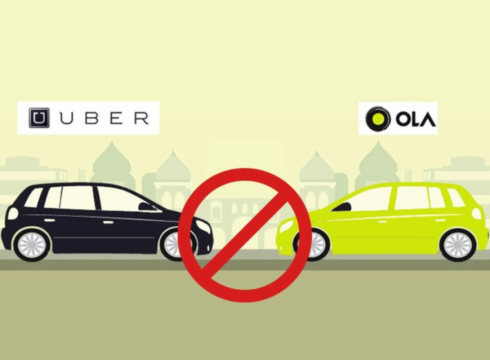The decision to ratify the 10% convenience dee was taken after positive feedback from auto ride users
Transport officials also rejected demand of ride hailing apps to charge 25% convenience fee and allow surge pricing
As an interim measure, the Karnataka HC had fixed the convenience fee charged by ride hailing apps at 10% of fares, exclusive of GST
Inc42 Daily Brief
Stay Ahead With Daily News & Analysis on India’s Tech & Startup Economy
In what could emerge as another flashpoint, the Karnataka government now plans to urge the High Court to ratify a temporary arrangement that capped the convenience fee charged by the cab aggregators at 10%.
This comes two weeks after the Court put in place an interim arrangement that fixed the convenience fee charged by ride hailing apps at 10% of fares, exclusive of GST.
The decision was reportedly taken after positive feedback from users. Earlier on Saturday (October 29), Karnataka Transport Department Secretary NV Prasad held a meeting with executives of ride hailing apps including Uber and Ola.
The meeting failed to yield any result as both sides failed to arrive at a consensus. While cab aggregators pressed for a 25% convenience fee (including GST), the transport department remained adamant on its 10% demand.
Calling the demands of cab aggregators ‘too steep’, officials favoured the continuation of the existing regime, people familiar with the development told The Economic Times .
The meeting also saw the two sides spar over surge pricing, but the idea was also shot down by transport department officials present at the meeting.
Convenience fee is a constant amount paid by users availing rides and goes directly into the accounts of the cab aggregators.
The Bone Of Contention
At the centre of the controversy are two issues flagged by state transport authorities – high convenience fee and confusion over whether cab aggregators are allowed to offer auto services.
Earlier this month, the department banned Uber and Ola from offering auto rides, saying that the two players have been licensed to offer only four-wheeler cab services. The order came amidst a public outcry over high prices charged by cab aggregators, even as parts of Bengaluru city recovered from heavy rains which inundated the IT hub.
Close on the heels of that, the aggregators moved the High Court, challenging the government’s order. Subsequently, the court issued an interim direction which capped the convenience fee at 10% of the total fare.
Another flashpoint appeared to be services that these ride hailing apps were allowed to offer. While Uber and Ola claim that aggregator guidelines issued by the Road Transport Ministry in November 2020 covered auto rickshaws as well, the state authorities claim otherwise.
Maintaining its stance, the transport department has claimed that the cab aggregators are only allowed to operate four-wheeler taxis under the Karnataka On-Demand Transportation Technology Aggregators Rules.
As the government now looks set to put its rubber stamp on the interim measure, the fallout has sent alarm bells ringing across the two ride-hailing majors. The decision could hit revenues of the two companies and threaten the ‘viability’ of their operations.
This adds to the problems being faced by Uber and Ola. While users have publicly lashed out at the platform for exorbitant pricing, authorities have also taken note of the ‘unfair business practices’ employed by the two giants.
Recent fuel hikes and razor thin margins have also hit the bottomline of Ola and Uber. Such has been the situation that reports also emerged of a possible merger between the two giants. Both players eventually denied the move.
Despite this, competition refuses to abate in the burgeoning sector. According to a report, the Indian online taxi services market was valued at INR 2,975 Cr in FY19, and is projected to soar to INR 6,159 Cr by 2024.
Note: We at Inc42 take our ethics very seriously. More information about it can be found here.


